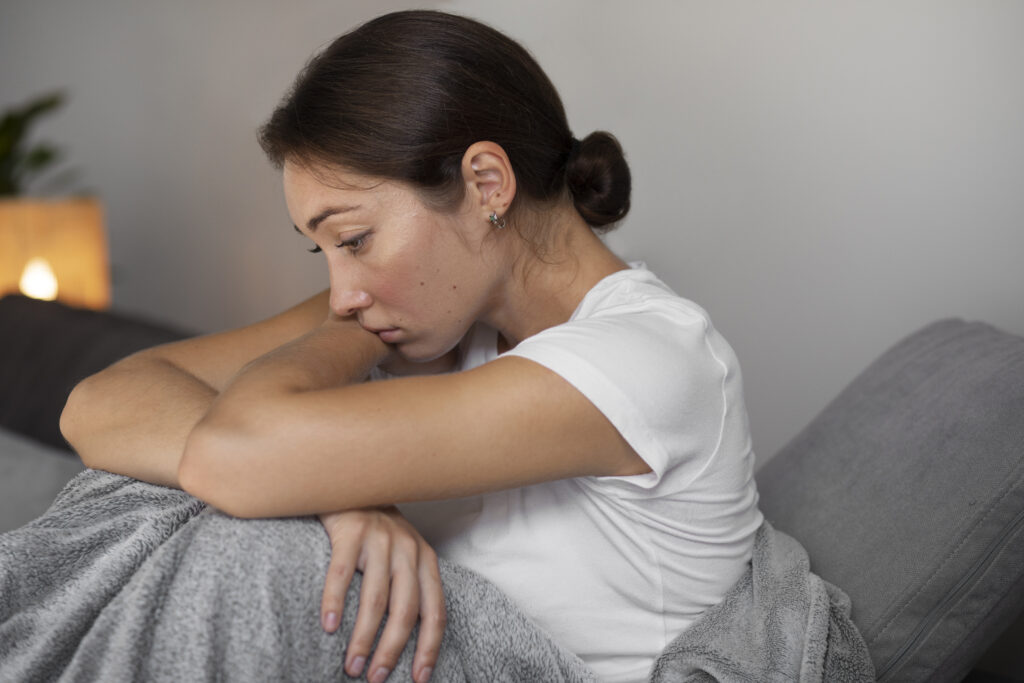
Depression is a complex and multifaceted issue that affects millions of people worldwide, but did you know that women are more likely to experience depression than men? Understanding this gender disparity is crucial. In this blog post, we’ll delve into five key factors explaining why women are more depressed than men. We’ll explore:
- Biological Differences: How Hormones Affect Mental Health
- Social Pressures: The Impact of Societal Expectations
- Trauma and Abuse: Higher Incidences Among Women
- Seeking Help: Why Women Are More Likely to Report Depression
- Work and Family: The Double Burden of Modern Women
By addressing these aspects, we aim to shed light on the unique challenges women face regarding mental health, providing valuable insights and support for those who need it most.
Biological Differences: How Hormones Affect Mental Health
Women’s mental health is significantly impacted by biological differences, particularly hormonal changes. These fluctuations in hormones, such as estrogen and progesterone, can greatly influence mood and emotional well-being. Hormonal changes and depression are closely linked, especially during periods such as menstruation, pregnancy, and menopause. Estrogen, in particular, has been shown to affect brain chemistry and mood regulation, leading to higher incidences of depression in women compared to men.
Social Pressures: The Impact of Societal Expectations
Societal pressures on women also play a critical role in the higher rates of depression observed in females. From a young age, women face intense and often unrealistic expectations related to beauty standards, professional success, and family responsibilities. These pressures can lead to anxiety and depression as women strive to meet these societal norms. The constant effort to conform to these expectations can create a sense of failure and inadequacy, further exacerbating depression.
Trauma and Abuse: Higher Incidences Among Women
Another significant factor contributing to female depression rates is the higher incidence of trauma and abuse experienced by women. Studies indicate that women are more likely to be victims of physical, emotional, and sexual abuse, which can have long-lasting effects on their mental health. Trauma and mental health are tightly interwoven, and the psychological impact on women who have experienced such events is profound. The scars left by these experiences often lead to chronic depression and anxiety disorders, emphasizing the need for comprehensive support and intervention.
“The emotional toll of societal expectations and trauma should not be underestimated.”
Seeking Help: Why Women Are More Likely to Report Depression
Interestingly, women are generally more likely to seek help and report depressive symptoms than men. This could be due to societal norms that make it more acceptable for women to express vulnerability and seek emotional support. Mental health statistics for women show higher rates of diagnosed depression, but this may also reflect a greater willingness to acknowledge mental health issues and seek treatment. This openness is crucial for getting the help needed, but it also skews the statistics, making gender differences in depression appear more prominent.
Work and Family: The Double Burden of Modern Women
Modern women often juggle multiple roles, balancing careers and family responsibilities. This work-life balance and mental health intersection can be overwhelming and lead to increased stress and depression. The double burden of professional and domestic duties places a significant strain on women, impacting their overall well-being. The struggle to meet both work and family expectations can create a constant sense of being stretched too thin, leading to burnout and mental health challenges.
Female Mental Health Support
Given these unique challenges, it’s essential to focus on female mental health support. Access to mental health resources, understanding healthcare providers, and supportive social networks can make a significant difference. By addressing women’s health issues comprehensively, from hormone management to trauma recovery, we can better support women in navigating these complex mental health challenges. Encouraging open conversations and reducing stigma around women and anxiety can also promote a healthier, more supportive environment for mental health care.
Striking a balance between work and family life is essential for mental well-being.

Understanding why women are more depressed than men requires a multifaceted approach, considering biological, social, and psychological factors. Women’s mental health is influenced by hormonal changes, societal pressures, trauma, and the challenges of balancing work and family responsibilities. By recognizing these unique stressors and providing appropriate support, we can help women navigate their mental health journeys more effectively. It’s essential to foster an environment where mental health is openly discussed and adequately addressed to improve the well-being of women everywhere.